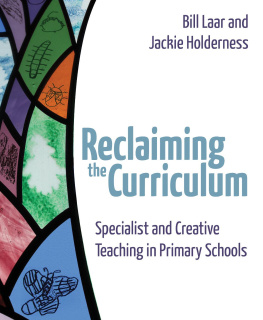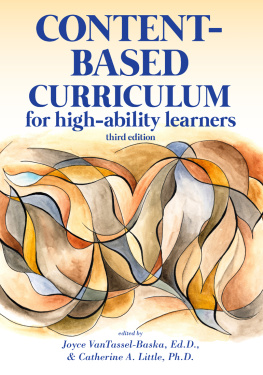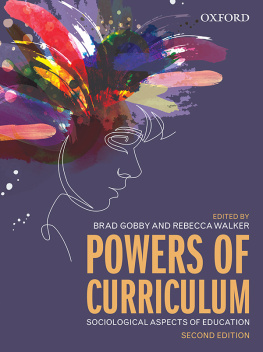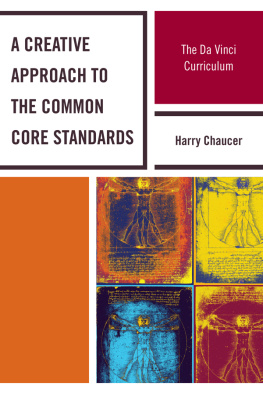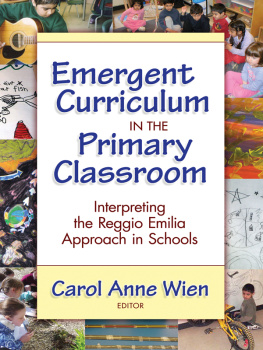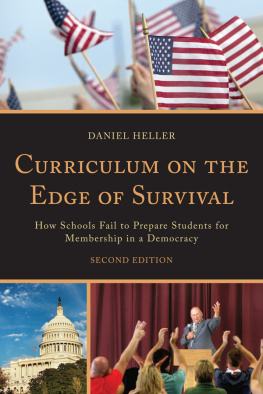We would like to thank all the schools and teachers who have contributed so generously to the book. We would also like to thank the editorial team at Crown House Publishing, and other professional colleagues, for their advice and encouragement.
This book sets out to document educational practice of notable quality in a range of primary schools across the country, exemplifying effective, imaginative and innovative treatment of major aspects of the curriculum. The work described succeeds in cultivating pupils cognitive and creative development in many ways and enhancing their learning and understanding in the broadest sense.
This comes at a time when the approach of many schools to pupils curriculum entitlement is shaped, and significantly constrained, by their perception of a governmental emphasis on the core curriculum at the expense of the rest. This bias is reflected in the major importance attached to national testing, assessment and league tables as indicators of school effectiveness. Schools have come to believe that their success, as measured by Ofsted, largely relates to ongoing attainment in English and mathematics, with little more than limited reference to other subjects and aspects of the curriculum.
Many head teachers and teachers increasingly fear that their effectiveness, their standing, their reputation with parents and the community, and, indeed, the professional evaluation and fate of leaders and staff, are dependent on brief, data-driven inspections that take scant account of the totality of the education they provide. Some schools have responded with a disproportionate concentration on the teaching of English and mathematics in terms of time allocation, staff deployment, coaching and prolonged practice, and the extensive use of commercial materials, especially in the teaching of writing.
However, official recognition and acknowledgement of the potentially restrictive and adverse consequences for childrens education and learning of this development has finally come.
In 2017, Ofsteds chief inspector, Amanda Spielman, commissioned a review into how the national curriculum is implemented in schools (Ofsted and Spielman, 2017). The review found that a significant consequence of a reduced understanding of the curriculum has been the narrowing of the primary curriculum in the final two years because of too great a focus on preparing for Key Stage 2 tests in English and mathematics. As a result, pupils were being deprived of lessons in subjects such as history, geography, languages, music, drama, computing, PE and art and design. She added that, as far back as 2001, there had been evidence of a restricted curriculum in primary schools, with the national literacy and numeracy strategies, along with increasingly demanding performance targets, adversely affecting the breadth of education provided.
Amanda Spielman went on to say that she had met many people who agreed that expertise in curriculum development and leadership had waned, with school leaders choosing to push curriculum development down their list of priorities. These leaders indicated that preparing staff to teach to the tougher assessment criteria for new SATs was more pressing.
She warned: Where school leaders and teachers have an overt focus on performance tables, this can lead to mistaking badges and stickers for learning and substance In addition, where there is little shared curriculum thinking among staff, it becomes increasingly difficult to moderate the influence of the test syllabus on primary curriculum design. The chief inspector did, however, draw encouragement from the fact that many school leaders are already working to revitalise curriculum thinking to ensure that the content of young peoples learning takes precedence over performance tables.
In conclusion, she reiterated her determination that Ofsted would ensure that the curriculum received the proper attention it deserves and, by implication, that the inspection process would be modified to achieve a proper review and acknowledgement of the nature and quality of primary curriculum, balanced against test outcomes and SATs attainment.
Not all are convinced or optimistic, however including those whose scepticism derives from the failure by Ofsted to take practical account of their own concerns about the narrowing of the primary curriculum, raised more than 15 years ago.
The following comments are fairly representative of staffroom reactions:
Why do Ofsted think we teach only to the test?
Why is it, in Year 6, the children do almost exclusively maths and English? Is it because the teachers love maths and English and hate all the other subjects? Or is it because, during Ofsted inspections, the primary focus is the maths and English data, and progress in maths and English? No one ever went into a category based on lack of progress in art!
So, Ofsted expect a broad and balanced curriculum, but still punish you if your results arent up to scratch within a tightly defined list of subjects.
Schools cite as evidence of continued circumscribed inspection an article in the TES by Tim Brighouse (2016), which describes his survey of Ofsted reports from over 200 primary schools. He found that reference to curriculum content was confined to English/literacy and mathematics, with no comment in any report to any other subject in the national curriculum.

